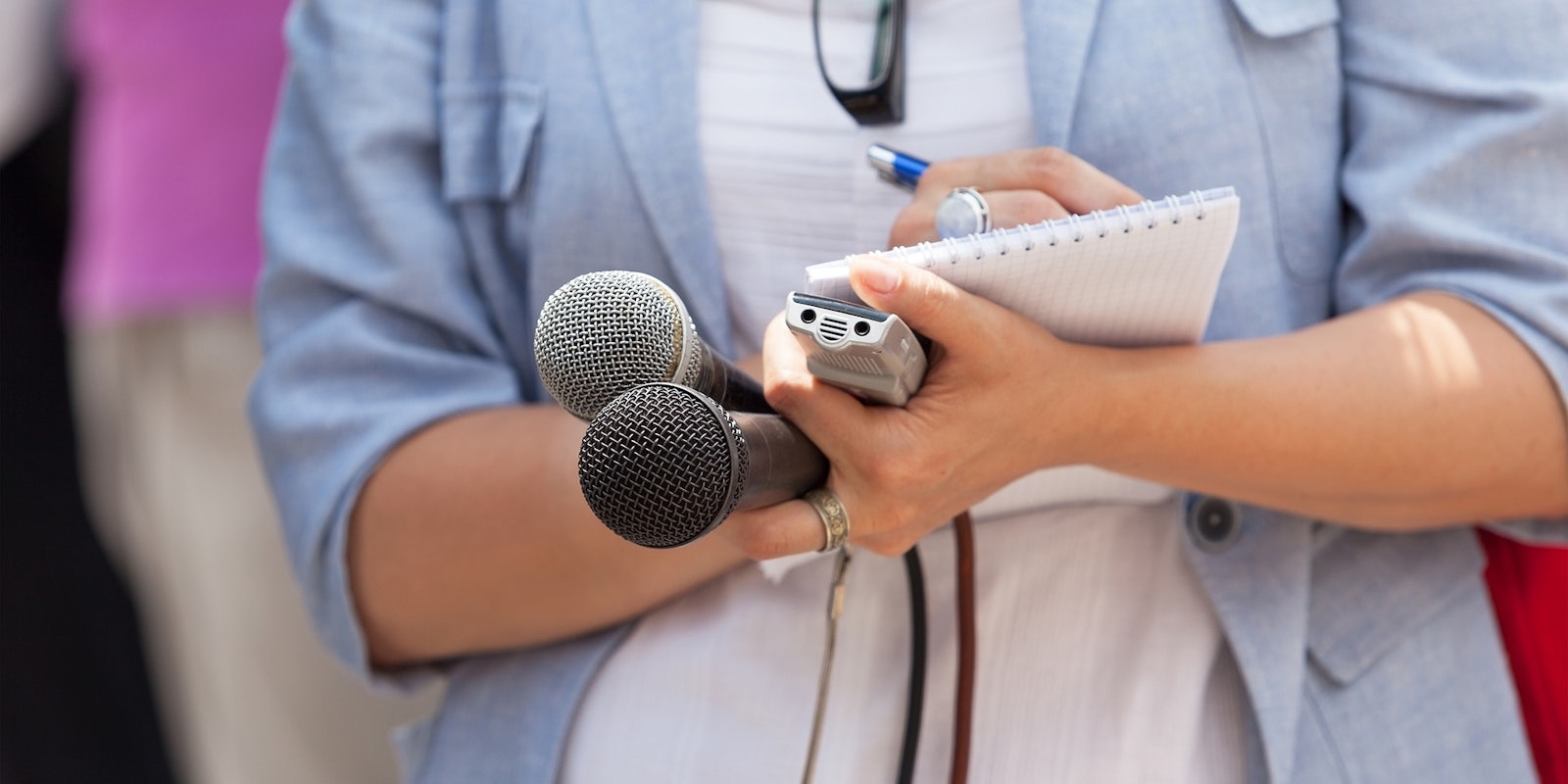If you’re not a journalist, you probably hadn’t heard of the Committee to Protect Journalism before Sunday night, when Meryl Streep took the stage at the 74th Golden Globe Awards and name-dropped the organization in the middle of her acceptance speech.
“We need the principled press to hold power to account, to call them on the carpet for every outrage,” said Streep, recipient of the Cecil B. DeMille lifetime achievement award. “That’s why our founders enshrined the press and its freedoms in our Constitution. So I only ask the famously well-heeled Hollywood foreign press and all of us in our community to join me in supporting the Committee to Protect Journalists, because we’re going to need them going forward, and they’ll need us to safeguard the truth.”
CPJ did not immediately respond to our request to comment on Streep’s speech.
CPJ has promoted and defended the rights of journalists for more than three decades. Founded in 1981, the New York-based group’s primary focus has been the freedom and safety of correspondents reporting from conflicts zones and dangerous areas of the world where journalists face intimidation, arrest, and violence.
Every year, CPJ publishes a comprehensive book on press freedom called Attacks on the Press, and its website maintains lists of journalists who have been imprisoned, exiled, or murdered.
Since the end of the election, the group has increasingly turned its focus toward the United States and the incoming Donald Trump administration. It began lobbying in mid-November for a meeting with Vice-President-elect Mike Pence in an effort to address concerns about the incoming administration’s commitment to press freedom.
“During the presidential campaign and since its conclusion, the climate for journalists has deteriorated sharply,” CPJ’s executive director, Joel Simon, wrote in an open letter to Pence. “President-elect Trump has obstructed major news organizations, attacked reporters by name, and contributed to a threatening climate for journalists covering the election.”
“These actions in the United States set a terrible example for the rest of the world, where governments routinely justify intervention in the media by citing national security, and where vilification of the press by public figures creates a divisive environment ripe for attacks on press freedom,” wrote Simon.
Thank you Meryl Streep for your support of CPJ and #pressfreedom at the #GoldenGlobes. Donations can be made online https://t.co/xAd0NgiTa7
— Committee to Protect Journalists (@pressfreedom) January 9, 2017
CPJ has also drawn attention to the security risks facing journalistic sources due to an increase of searches and interrogations of journalists at the U.S. border. In December, the group described how one French-American photojournalist avoided returning to Texas for the holidays, concerned she might be interrogated at the airport—as had happened the year before when Homeland Security agents rifled through her belongings and read private messages from confidential sources.
The group was especially alarmed by statements made by Trump during a campaign stop in February 2016: “I’m going to open up our libel laws so when they write purposely negative and horrible and false articles, we can sue them and win lots of money,” he said. Trump also threatened to sue the New York Times in October over an article detailing allegations of sexual harassment two women made against Trump.
Last week, CPJ highlighted in its ongoing blog series, Transition to Trump, the need for strong encryption, which the group notes is “essential for journalists reporting on sensitive issues and their sources.” Reliable encryption products have been under threat from the Obama administration and lawmakers who’ve sought to weaken commercial encryption products in an effort to aid future law enforcement investigations. After Apple challenged the U.S. government’s authority to force the company to weaken its encryption—i.e., create an encryption “backdoor” into its phones for police—Trump called on his supporters to boycott Apple products.
The United Nations in September recognized the need of journalists to protect sensitive material and sources through the use of encryption and anonymity tools in its biennial resolution on journalist safety.
Click here to learn more about the Committee to Protect Journalists or here to make a donation online.
